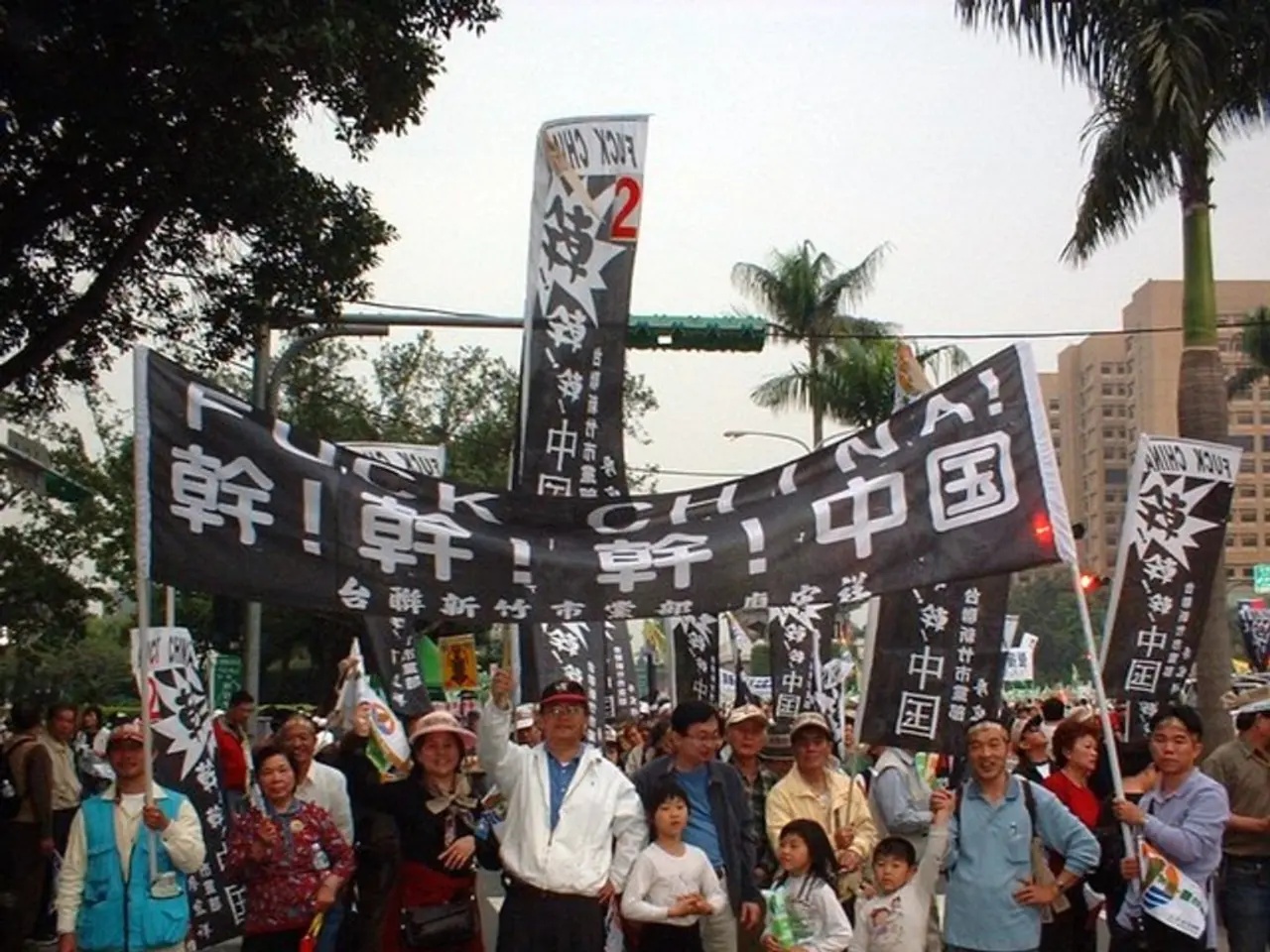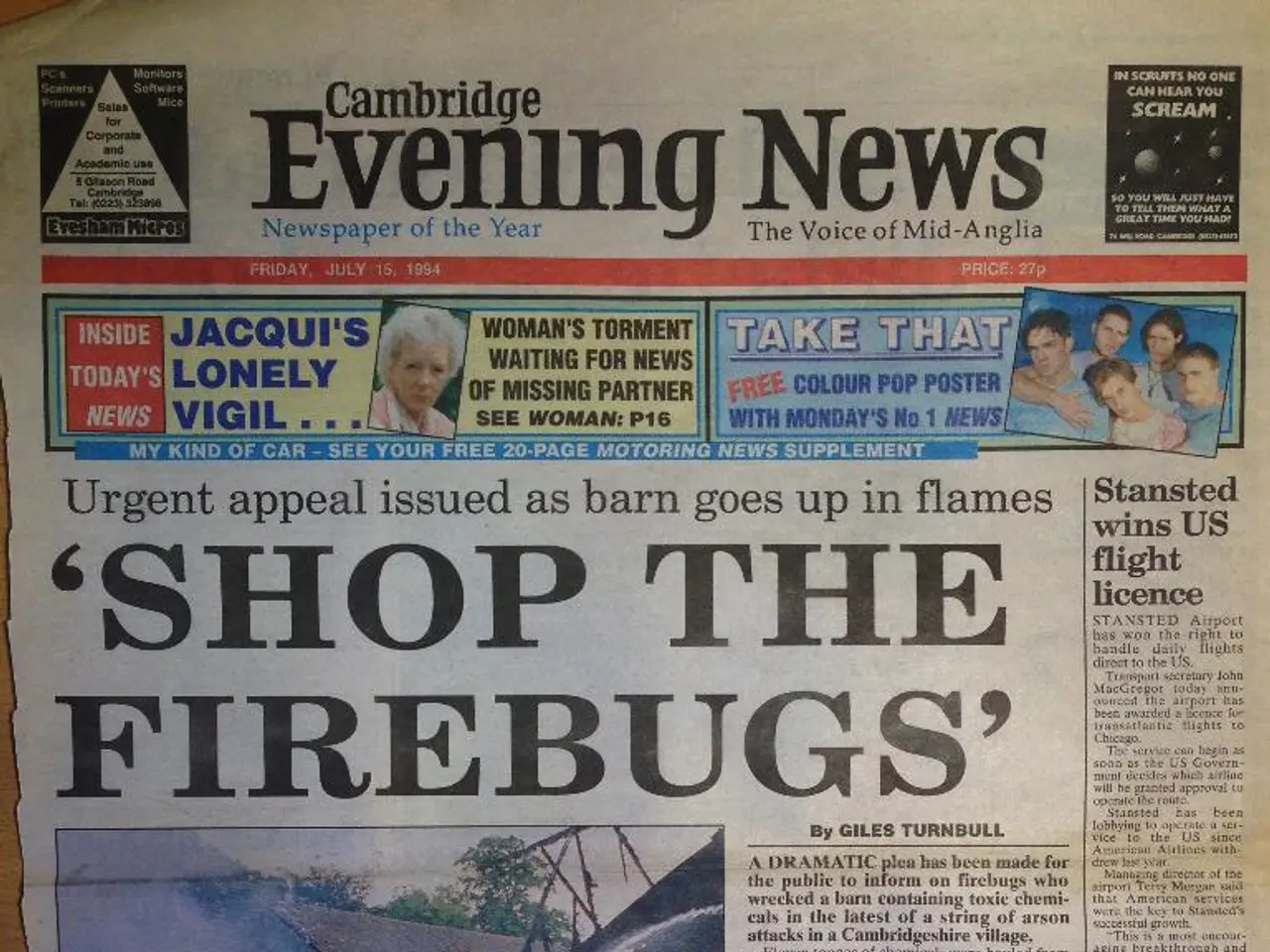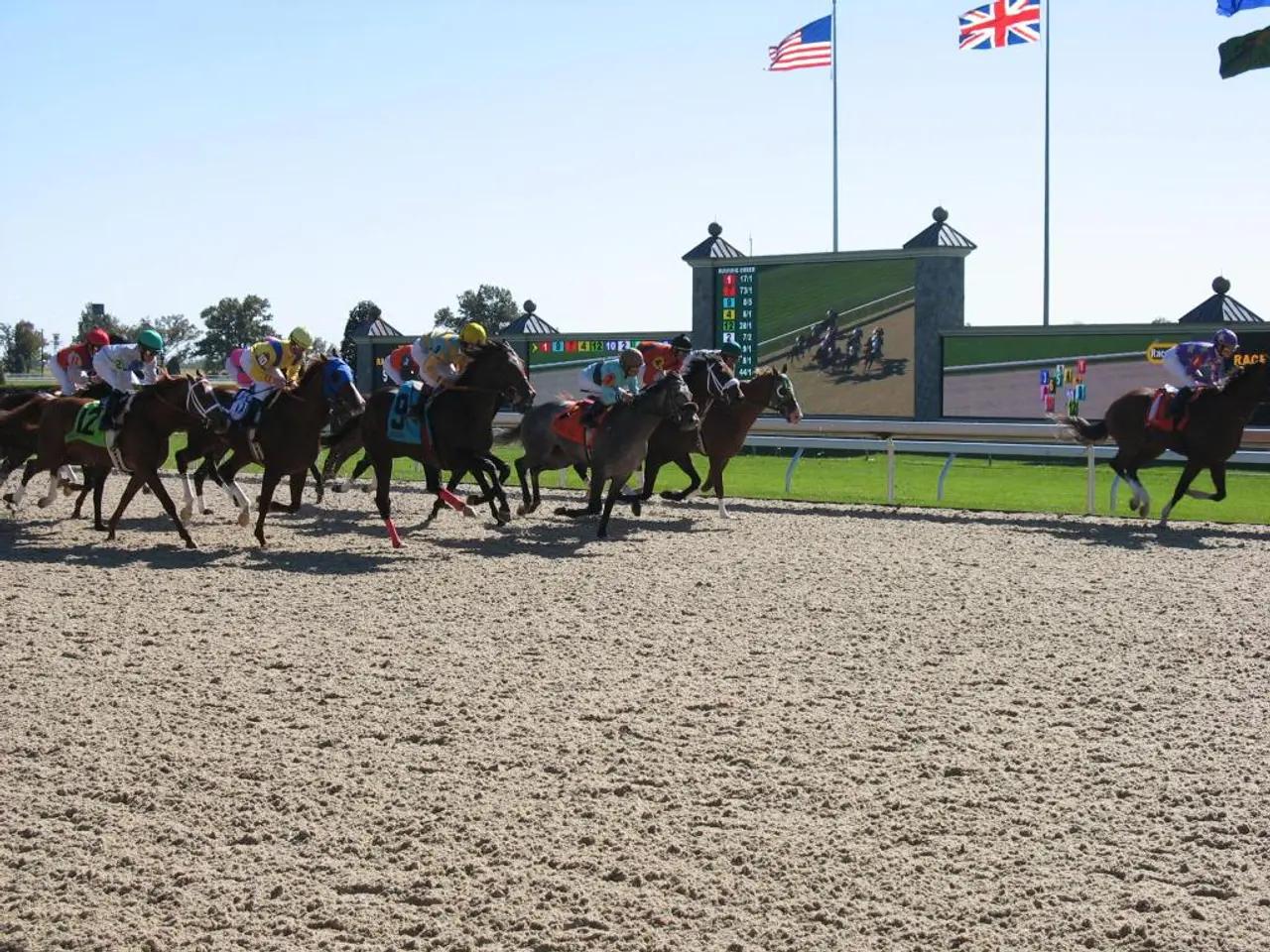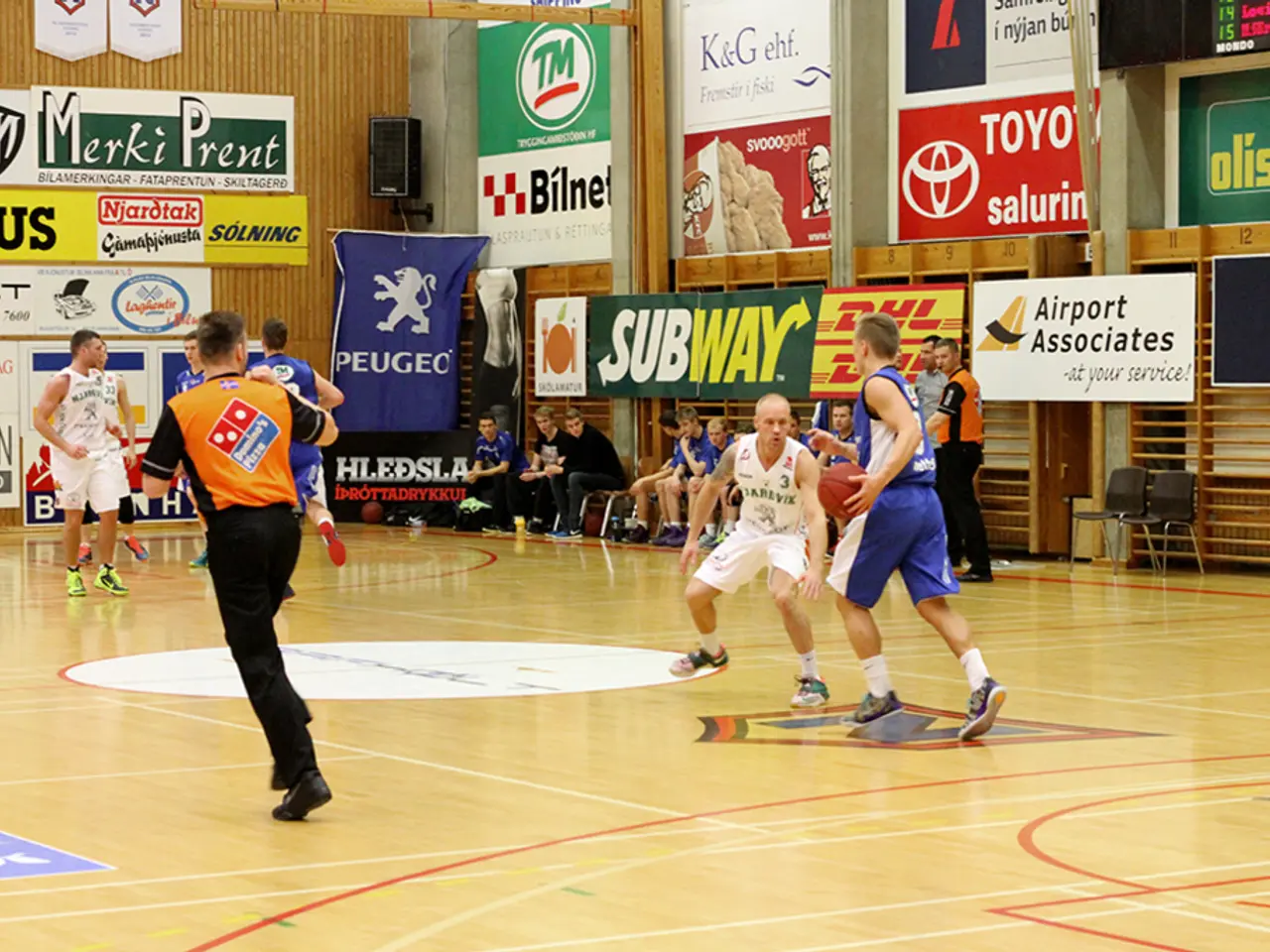No Rainbow Rainbow Over the Bundestag? Queer Community Faces Challenges
Society's drive for diversity encountering pushback?
By Aljoscha PrangeMore InfoFacebookTwitterWhatsappEmailPrintCopy Link
June is Pride month, and the season of Christopher Street Day (CSD) parades is underway. For decades, these demonstrations and colorful parades have commemorated, celebrated, and protested the first known uprising of queer minorities against police brutality in New York's Christopher Street. CSD has become a vital part of Germany's societal and political calendar.
Recently, hoisting the rainbow flag on the Reichstag building has been a clear sign for diversity, self-determination, and an open society. However, this year, things seem to be taking a different turn.
Politics and Symbolism The Bundestag, Germany's federal parliament, won't fly the rainbow flag on July 26th, the day of the Berlin CSD parade, citing political neutrality as the reason. Alexander Irmisch, an SPD politician and co-organizer of the CSD in Regensburg, criticized this decision, stating it sends the wrong message. Irmisch also highlighted that the CSD parade in Regensburg must be shortened due to an "abstract threat situation."
The Bundestag's decision comes at a time when attacks on queer people have risen, with a 18% increase in reported cases across Germany last year. In recent years, the queer rainbow network of the Bundestag administration has participated in CSDs, but the newly appointed director of the Bundestag has prohibited their participation this year. The CDU politician behind these decisions claimed it was due to a "mandatory neutrality obligation."
Controversy and Criticism Left Party MPs criticized the Bundestag's decision as a "political and moral failure on all fronts," while the Greens called on the parliamentary president to "show the flag for the freedom and security of queer people." The Social Democrats (SPD) also expressed concern, urging the Bundestag's administration to allow employee networks to participate in CSDs.
Meanwhile, some CDU politicians, like Karin Prien and Kai Wegner, are taking a different approach, with the Federal Ministry of Family Affairs planning to participate in the CSD in Berlin, as they believe it is an essential symbol of recognition and respect for the diversity in society.
Increased Violence Against the Queer Community
Rising Attacks There has been an alarming rise in violence towards the queer community. In 2023, the Federal Criminal Police Office reported 1,765 cases related to sexual orientation (up 18% compared to 2023), and 1,152 cases against trans or non-binary individuals (up 35%). These statistics represent a worrisome trend reflecting the need for solidarity and protection for this vulnerable group.
Recent examples of this increased violence include a diversity festival in Bad Freienwalde being attacked by hooded individuals with hammers and wooden planks, leaving at least two people injured. Meanwhile, in neighboring Saxony-Anhalt, a man was suspected of planning an attack on the CSD in Wernigerode and was arrested.
Political Response Right-wing extremists have announced a counter-demonstration to the Pride Parade in Berlin's Marzahn-Hellersdorf district. The neo-Nazi group "Deutsche Jugend voran" (DJV) is believed to be behind this counter-action. Counter-demonstrations have increasingly been a part of the landscape during CSDs, with LGBTQ+ activists and right-wing extremists clashing in several cities.
Support and Activism
Despite the challenges, the LGBTQ+ community continues to stand strong and advocate for their rights. Pride parades remain vital events for self-expression, affirmation, and protest. In the face of increasing violence and political resistance, the community relies on allies, organizations, and politicians who stand with them in solidarity.
Source: ntv.de
- LGBTIQ
- Homosexuality
- Equality
- SPD
- Police
- Violence
- Right-wing extremism
- Right-wing populism
- Julia Kloeckner
- CDU
- German Bundestag
Enrichment Data:The controversy surrounding the rainbow flag and its public display extends beyond the Bundestag, as demonstrated by instances in Neubrandenburg where councillor Tim Großmüller explained the removal of the rainbow flag from public buildings citing its association with criminal offenses, such as theft and replacement with prohibited swastika flags. The city coat of arms was also argued to be misrepresented on the flag. These motions gained support from right-leaning groups such as the AfD. Moreover, in Bavaria, the AfD proposed a ban on rainbow and EU flags on public buildings, stressing the display of only federal, state, or municipal flags. These instances highlight the political debate and opposition towards rainbow flag displays in certain sectors of German society.
- The employment policies of EC countries should address the increasing violence against the queer community, as the number of reported cases related to sexual orientation and gender identity has been rising.
- Political neutrality should not silence the representation of the queer community, as demonstrated by the Bundestag's decision to not fly the rainbow flag during the Berlin CSD parade.
- In the face of political resistance and counter-demonstrations, the LGBTQ+ community relies on fashion-and-beauty trends and social-media platforms to spread awareness, build solidarity, and advocate for their rights.
- The employment policy of the Bundestag should support and encourage the participation of employee networks like the queer rainbow network in events promoting diversity and self-determination, such as the CSD parades.
- As politicians debated the display of rainbow flags on public buildings, cases emerged where the removal of the rainbow flag was justified by associating it with criminal offenses, leading to a political divide.
- Policies and legislation should be enacted to ensure the safety and security of the queer community, as the number of attacks has significantly increased in recent years.
- Entertainment and pop-culture platforms can play a significant role in promoting acceptance and combating discrimination towards the queer community, by showcasing diverse lifestyles and challenging prejudices.







